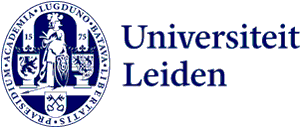
King of Sweden visits Leiden University
Collaborating in drug discovery and health research was the goal of a visit to the Leiden Bio Science Park on 14 May by a Swedish delegation including His Majesty King Carl XVI Gustav of Sweden. The delegation visited Leiden University’s Faculty of Science.
Rector Magnificus Hester Bijl from Leiden University welcomed the delegation. ‘This visit is a huge honour’, she said. ‘We conduct a lot of cutting-edge research and are most proud of that. And our researchers work intensively with the Leiden Bio Science Park (LBSP), which is right next to our university and is the largest life sciences knowledge cluster in the Netherlands.’
City of discoveries, especially for the life sciences
Because the life sciences and health are high on the agenda in Leiden. The entire LBSP ecosystem is built around this. The Faculty of Science and the LUMC are important partners in this ecosystem and they shared their knowledge with the delegation.
-

The King of Sweden listens to an explanation by Professor Thomas Hankemeier. -

The King is given a tour by Esther Peters, Director of the Leiden Bioscience Park and Professor Thomas Hankemeier. -

The King is introduced to staff and facilities and is welcomed by, among others, Rector Hester Bijl. -

-

Professor Ton Rabelink explains the highlights of his research -

-

Photo's: Sarah Muirhead
Exposome scan: analysing harmful substances
Professor of Analytical Biosciences Thomas Hankemeier gave the King and his delegation a tour of a new, high-tech research facility. ‘It was great to show the King of Sweden our research facility’, an enthusiastic Hankemeier said. ‘Our Exposome scan is unique in the world. It is a robot that can measure and analyse substances in a large quantity of blood and urine samples. This will help us understand the influence of environmental factors on disease development and detect disease at an earlier stage.’
Hankemeier had the opportunity to talk at length with His Majesty King Carl XVI Gustav of Sweden and other delegation members. ‘We discussed how innovations can be brought to market and citizens faster, and how to stay competitive in Europe. It was a really interesting conversation.’
Repairing tissues with cell and gene therapy
At the LUMC the Swedish delegation met Professor of Internal Medicine Ton Rabelink and his team. Rabelink is an expert in regenerative medicine, which means repairing damaged tissue. He showed the visitors the team’s cell and gene therapy research.
Rector Magnificus Hester Bijl stressed the importance of the visit, ‘Our researchers like to collaborate, within and beyond our national borders. That benefits knowledge generation. So it is wonderful to have the Swedish delegation visit Leiden. This may result in fantastic co-projects.’
The Royal Swedish Academy of Engineering Sciences
The Royal Swedish Academy of Engineering Sciences (IVA) has been organising its Royal Technology Mission (RTM) for Swedish business leaders and government and university representatives since 1984. This year they have come to the Netherlands and are visiting the Leiden Bio Science Park, Wageningen Campus, the Port of Rotterdam and Brainport.
